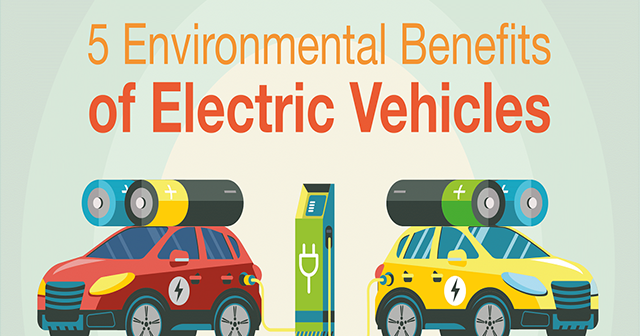In today’s world, people are looking for ways to save money and help the environment. One way to do both is to drive an electric car. Electric cars are cheaper to operate than gas cars and they emit no pollutants. Electric cars are powered by electricity from batteries. The batteries are recharged by plugging the car into an electrical outlet. Electric cars have many advantages over gas cars. Electric cars are cheaper to operate than gas cars. The cost of electricity is much lower than the cost of gasoline. Also, electric cars don’t require tune-ups or oil changes. Electric cars emit no pollutants. Pollution from cars is a major contributor to air pollution and global warming. Electric cars don’t produce any emissions, so they don’t contribute to these problems. Electric cars are very quiet. Gas cars produce a lot of noise, which can be annoying, especially in urban areas. Electric cars are much quieter, so they won’t disturb your neighbors. Electric cars have a smaller environmental impact than gas cars. The manufacturing of electric cars has a smaller environmental impact than the manufacturing of gas cars. Also, electric cars don’t require the mining of fossil fuels, which can have a negative impact on the environment. Electric cars are the wave of the future. More and more people are choosing to drive electric cars. As the technology improves and the infrastructure is developed, electric cars will become more popular and more affordable.
The automobile, as well as other forms of transportation, is one of the most common causes of air pollution in our country. The transportation sector’s emissions contribute significantly to ground-level ozone pollution (also known as smog) and particle pollution. Electric vehicles come in a variety of shapes and sizes. Electric vehicles are expected to cost less than gas-powered models over the next five years. Gas would cost about half of what electricity would, so electricity is much cheaper. According to studies, the average EV owner can save thousands of dollars on fuel per year. There is no transmission in electric cars, and the power is delivered directly to the wheels by the motors.
A range anxiety is a fear that an electric vehicle will run out of power before it reaches its destination. Currently, there are over 26,000 public charging stations throughout the United States. Buying an electric vehicle will help to improve air quality while also slowing the effects of climate change.
Disadvantages Of Electric Cars On The Environment

Electric cars, in contrast to gasoline vehicles, do not emit exhaust fumes; however, batteries in electric vehicles can emit toxic fumes. The vast majority of electricity used to power electric vehicles comes from nonrenewable energy sources that have a negative impact on both our health and the environment.
Electric cars are becoming more popular, but there are some drawbacks to consider. Lead and cadmium, two of the most toxic chemicals found in batteries that power electric vehicles, are among the chemicals found in the batteries. Electric vehicles emit more greenhouse gas emissions per mile driven than gasoline-powered vehicles. As a result, electric vehicles are not designed to be environmentally friendly. Toxic chemicals in batteries can contaminate water and the ground when used in electric vehicles. Lead and acid in car batteries, particularly those used in vehicles, pose a serious threat to human health and wildlife. Electric car batteries are typically not recycled, which means they end up in landfills, where toxic chemicals can be released.
Electric cars have a number of advantages over gasoline-powered vehicles in terms of performance. There is less chance of a component breaking down in these vehicles, and they are easier to maintain. Furthermore, electric vehicles produce fewer emissions because they are more efficient. As more people drive electric cars, we can expect a decrease in car pollution. It is critical to use lithium batteries because acid can contaminate drinking water. Car emissions are the most significant source of global warming. Energy consumption is a significant issue in cars, in addition to resources such as oil.
We will run out of these resources as soon as we can find alternatives. Some environmentalists are concerned that electric vehicles are harmful to the environment. Despite the fact that electric vehicles emit no emissions, the manufacturing of batteries and electric cars consumes a lot of resources and causes a lot of waste. The charge of electric cars can indirectly contribute to global warming. There are programs like EV charging grants, which can help offset some of these environmental effects.
The Pros And Cons Of Electric Cars
Even though electric cars are more efficient, they have a lower carbon footprint than gasoline cars, even when accounting for the electricity used for charging. When a vehicle is converted to electric power, it emits no emissions into the atmosphere. Electric vehicles can also provide some environmental advantages in addition to being environmentally friendly. They burn tires, release brake dust, and blow dust into the air, which contributes to particulate matter in the air. Particulate matter has a negative effect on respiratory health. The fact that electric cars emit no fumes from their engines is a major advantage. Electric vehicles, on the other hand, do not always meet the highest standards. When driven in urban areas, they emit more greenhouse gases than gasoline-powered vehicles. They are also more expensive to run than gasoline-powered vehicles.
Social Benefits Of Electric Cars

Electric cars emit fewer carbon dioxide emissions in urban areas, resulting in cleaner air. This will help a lot of people suffering from respiratory diseases such as asthma. Their emissions, on the other hand, are not directly related to the electricity grid.
How does electric car impact the environment? Electric cars are not only energy efficient, but they can also reduce an individual’s carbon footprint. Electric vehicles use less energy because they are so efficient. Electric vehicles do not require as much maintenance as internal combustion engines because they do not have the complex set of moving parts of an internal combustion engine. A car’s battery is an excellent example of a large energy storage device. The largest Tesla batteries produce more energy than the smallest ones. Electric cars do not require oil for fuel, lowering the need for imported oil.
As a result, energy prices will remain stable, and the country will no longer be reliant on oil-producing countries. Electric vehicles are significantly quieter than gasoline and diesel vehicles, making driving more pleasant. Furthermore, by emitting fewer local carbon emissions, they reduce air quality in urban areas. Electric cars are also less expensive to drive than gasoline vehicles because their distance per unit of energy is higher. Make sure you have enough battery power for the entire journey, and plan your route carefully so you don’t run out of juice mid-way. Electric vehicle (EV) drivers can gather information and ask questions in a number of online communities. You can charge your car while you sleep by installing a home charger.
Electric vehicles can be purchased at a wide range of prices in different parts of the world. For example, in the United States, the average price for a home is around $30,000. It is possible to purchase a model for as little as $100,000 or as much as $1,000,000. Electric vehicles can help reduce pollution and climate change, as well as save money on gas.
All Cars Should Be Electric

The United States has a love affair with the car. Cars are a symbol of freedom and independence. They are a way to get away from it all and explore the open road. But cars also come with a dark side. They are a leading cause of pollution and climate change. They consume vast amounts of fossil fuels, which are a finite resource. They contribute to traffic congestion and accidents.
Electric cars offer a solution to many of these problems. They are much cleaner than gas-powered cars, since they produce no emissions. They are also more efficient, since they convert a higher percentage of the energy in their batteries into power. Electric cars also have the potential to reduce traffic congestion, since they can be plugged into the grid and recharge while people are at work or asleep.
There are some challenges to electric cars, of course. batteries are expensive, and charging infrastructure is still limited. But these challenges are not insurmountable. With the right policies in place, electric cars could play a major role in solving our transportation problems.
Despite the fact that electric cars are better for the planet than gasoline-powered vehicles, many Americans continue to resist the switch. According to new research, electric cars may actually save drivers money over the long run. According to MIT researchers, carbon dioxide emissions and lifetime costs were calculated for nearly every new vehicle model. They were also frequently less expensive over time. Researchers in the M.I.T. Trancik lab have calculated the lifetime costs and emissions of various types of cars based on their research. Some hybrid cars were less expensive and more efficient than regular cars, but others cost the same or were in the same emissions and cost range as gas-only vehicles. The information was made available through an interactive online tool that allows users to calculate the true cost of purchasing a car.
Charging a vehicle is far less expensive than filling up at a gasoline pump in 50 of the country’s largest cities. Electricity costs in Hawaii, Alaska, and parts of New England are among the highest in the country. In California, gas prices are higher than in the Gulf Coast. For some new electric vehicle purchases, the federal government provides tax credits.
All Cars Should Be Electric
Should all cars get an electric motor? All cars should be fully electric by the year 2020. You will be able to breathe cleaner air as a result of cleaner cars.
Health Benefits Of Electric Cars
Electric cars offer many health benefits over traditional gasoline cars. They emit no pollutants and are much quieter, which improves air quality and reduces noise pollution. They also have a smaller environmental footprint than gasoline cars, and their batteries can be recycled.
The cost of operating an electric vehicle is approximately 40% less than that of a gasoline or diesel vehicle. If you use a solar PV system or pay for a free charging station, you will pay less for your EV. In comparison to a conventional gasoline-powered car, a battery electric vehicle (BEV) has fewer moving parts and is generally less expensive to maintain. When you buy an electric vehicle (EV), you are helping to reduce harmful air pollution caused by vehicle exhaust emissions. When a battery is charged from the electric grid, it emits no exhaust gases but produces a small amount of greenhouse gas emissions. You can further reduce your carbon footprint by installing a solar PV system and charging your EV during the day.
Why Are Electric Cars Better For Human Health?
Smog-causing pollutants, such as nitrogen oxides, are among the pollutants directly emitted, as are other pollutants, such as greenhouse gases (such as carbon dioxide), and other human health-threatening pollutants. Electric vehicles produce no direct emissions, which helps to improve air quality in urban areas.